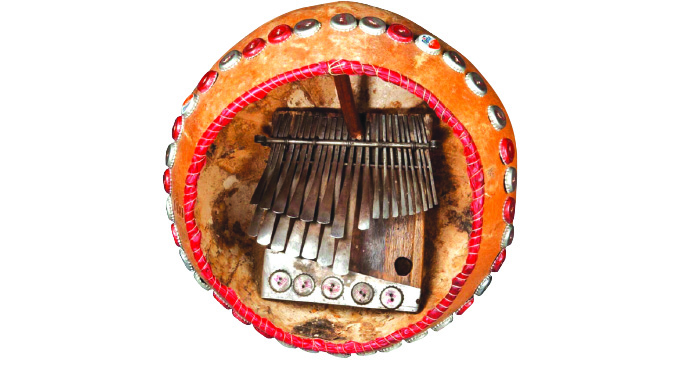Zim needs its original digital sound

Clive Mono Mukundu-Herald Correspondent
While I was in Jamaica for the Island Music Festival recently, I made it a priority to utilise any available time to engage with and acquire information and knowledge from both fellow participants and notable Jamaican music professionals who were not present at the conference.
I had a fascinating conversation with a journalist from Trinidad and Tobago, a country famous for its Calypso music.
I inquired about the distinction between Calypso and Soca music, and she explained that Calypso is the original, traditional organic sound, while Soca is a contemporary, digitalised and more pop-oriented version.
Calypso is characterised by the use of live instruments, whereas Soca often incorporates digitalised beats.
I then realised that most successful countries in the global music market have both their own distinctive organic and digital sound. For instance, Jamaica has roots reggae as its organic sound and dDancehall as its digital, modern pop sound.
Nigeria has Afro Beats (played live with the influence of Fela Kuti) as its organic sound, and Afro Beats (with an ‘S’) as its digital version.
South Africa boasts genres like Mbaqanga and Afro Jazz for their organic sound, while Amapiano represents their digital, modern pop sound.
It’s worth noting that these countries truly own both their organic and digital sounds, even though they may have borrowed elements from other genres.
But ultimately, the overall sound is unique to them.
In Zimbabwe, we have our own organic Mbira based genres, but we lack a unique digital sound that has not been borrowed from elsewhere.
Dancehall, Amapiano, and Afro Beats, which we rely on for our digital sound, do not truly belong to us.
Therefore, I strongly believe that we need to develop our own home-grown digital sound.
This would allow us to make an impact on the global music scene from both fronts, which are our Mbira-based organic sound, which has produced international acts like Thomas Mapfumo, Oliver Mtukudzi, and others, and a digital sound that truly represents us.
Currently, we do not have any internationally recognised digital artists, mainly because our digital sound has always been borrowed and just performed in local languages like Shona or Ndebele.
In Zimbabwe, whenever a music genre is labelled as “modern,” it invariably means that it has been borrowed from foreign sources.
“Superstars Shift Culture”
During his keynote speech at the Island Music Festival, Shaggy made a thought-provoking statement about the relationship between stars and superstars.
He said; “Stars represent culture, but superstars shift culture.”
So according to Shaggy, only superstars possess the influential power necessary to instigate significant shifts in music.
He mentioned how Bob Marley and Chris Blackwell faced backlash from traditional reggae enthusiasts for incorporating foreign session musicians and adding rock guitar and new keyboard sounds as overdubs in their music.
However, Bob Marley’s innovative approach to playing Reggae has now become the norm for the genre, illustrating how he used his superstar status to revolutionise the sound of Reggae music.
What I am trying to express is that we have many popular digital/pop superstars who incorporate genres like dancehall, hip hop, Amapiano, and Afro Beats.
However, it would be great if some of them could pioneer a genre or sub-genre that is truly homegrown, without using Zimbabwean Patois or Zim-Nigerian accents.
Nigeria has showcased a successful approach to conquering the world through uniqueness rather than imitation, paving the way for others to follow.
The impact of Nigerian Afro Beats music can be seen as it now receives airplay even on Jamaican radio stations, and even on the Emirates plane we travelled on from Dubai to Brazil on our way to Jamaica.
Artists like Davido and Burna Boy have become superstars in Jamaica, with Burna Boy even managing to fill up a stadium there last year.
This achievement would have been much more challenging if they had attempted to mimic the Jamaican sound.
I have been listening to some of Holy Ten’s music, and I have noticed that some of his beats are heavily influenced by Zimbabwean rhythms.
I find this particularly interesting because it aligns with what I was just talking about.
Another example of this is Mafrique, who were heading in the same direction with their two most popular songs “Ndomuudza sei” and “Chizevezeve,” on which I played the guitar.
Unfortunately, they disbanded before fully creating this style.
It’s fascinating to think about the untapped potential of the original sounds and rhythms that exist in Zimbabwe. Instead of copying from other cultures, we should use our own rhythms as a starting point.
At the Jamaican conference, it was repeatedly mentioned that the global attention is now focused on Africa in search of fresh musical styles.
However, this does not imply that they anticipate everyone to imitate Nigerian Afro Beats or South African Amapiano, as these genres have already gained international recognition.
Instead, now they can’t wait to hear a digitalised Mhande, Muchongoyo or Dinhe beat.
Being in a global village does not mean we have to lose our uniqueness.
I can hear someone say “Why don’t you do it” I have a two-part reply to that question:
1: I can’t shift culture because I’m not a superstar. As Shaggy said, “Stars represent culture, but superstars shift culture.” Therefore, my influence is limited to attempting to sway the superstars as I am attempting to do right now, if they are open to listening to someone less popular than them.
2: If we look at the history of musical revolutions, they were spearheaded by young people who understood the current trends. As I often say, “From the older generation, we need wisdom, but we rely on the youth for strength.”
Mono Mukundu, along with Mr Nicholas Moyo, the permanent secretary in the Sports, Recreation, Arts and Culture department, attended the Island Music conference in Jamaica from February 21st to 25th.








Comments